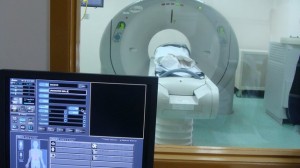Islamic Perspective
 Invasive post-mortems are forbidden in Islam due to the violation of the sacredness of the human body. The most explicit affirmation of human dignity (karamah) is found in the Holy Qur’aan, in a general and unqualified declaration: “We have bestowed dignity on the children of Adaam (AS) …and conferred upon them special favours above the greater part of Our creation” (17:70).
Invasive post-mortems are forbidden in Islam due to the violation of the sacredness of the human body. The most explicit affirmation of human dignity (karamah) is found in the Holy Qur’aan, in a general and unqualified declaration: “We have bestowed dignity on the children of Adaam (AS) …and conferred upon them special favours above the greater part of Our creation” (17:70).
The great Quraan commentator, Allamah Al-Alusi (RA) stated that “everyone and all members of the human race, including the pious and the sinner, are endowed with dignity.” This inherent and natural honour and dignity is not earned through meritorious acts, but established by the grace and mercy of the Almighty from conception. Hence, no individual, nor state can take it away from anyone.
Furthermore, the Prophet Muhammad (pbuh) said addressing the sacred Ka’bah: You are the most pure and the most dignified, but the One in whose hands Muhammad’s life reposes, the sanctity and honour of a believer, his life and his property, is far greater in the eyes of the Almighty” (Ibn Majah).
Moreover, this sanctity is preserved even after death. The Prophet Muhammad (pbuh) said: “Breaking the bone of a dead person is similar (in sin) to breaking the bone of a living person” (Abu Dawood). Thus, it is Islamically unlawful to cut, tamper, dissect, mutilate and dishonour any human being.
However, since the law of the land compels that invasive post-mortems are carried out in the event of a cause of death not being ascertained, thus, Islam permits it out of necessity and legal requirement.
To this extent, the coroner will decide if an invasive procedure is required without the family’s consent. “In 2009, 500,100 deaths were registered in England and Wales and 46% were referred to coroners. Of those deaths referred, 108,360 (46%) resulted in autopsy” (The Guardian, 2011).
Role of IMWS
For over fifty years, IMWS have been actively providing assistance and support to distressed families by providing the burial service, liaising with the hospitals, registrars, coroner, arranging all the necessary paperwork and contacting the council to ensure the graves are dug in order for the burial to take place as soon as possible. IMWS realise the importance of this work and set up a Burial Sub-Committee to oversee the constant changes that are taking place. The organisation has also been actively engaged in pursuing other avenues in relation to Post-mortems with the emphasis of introducing new digital services, such as MRI and CT scanning facilities for the benefit of the community.
What is Digital Autopsy?
Bodies are placed in a CT scanner and scanned in 0.5 millimetre slices. These are then used to re-create the body in a 3D visualisation software program. Forensic experts carry out the non-invasive autopsy on a computer screen. This digital method is very clean and speedily undertaken without the need for dissecting the body. However, there may be occasions when the cause of death cannot be determined, hence, this technique focuses on the specific areas of the body that need examination through the conventional intrusive method without the full invasive procedure being carried out.
IGene opened the first Digital Autopsy centre in Sheffield in 2013. They are also planning to open one in Bradford with the building work already started and the work schedule to be completed by August/September of this year. IGene is part of INFOVALLEY, a Malaysian company that has been given the go ahead by the government to build and develop 18 digital centres across England and Wales.
Next Step
Once the Bradford Digital Autopsy centre is operating, bereaved families will be able to request the coroner to undertake the non-invasive procedure with a fee approximately £500 plus VAT incurred on the family – the price may be subject to change. However, if the results from the digital procedure are inconclusive then there will be no fee incurred on the bereaved family. Thus, the coroner may decide to carry out the conventional post-mortem to determine the cause of death.
IMWS is actively engaged with the statutory organisations to ensure that this new digital system is offered to bereaved families in the event of the death of their loved one being referred to the coroner. A protocol will hopefully be set up so bereaved families know who to contact in the event of a post-mortem being under consideration. We will also inform you of further updates in future editions of Paigaam.
Mohammed Laher, former Chair of the Burial Committee, said “The advancement of new technology in autopsy is a great leap forward in this work, it will give a family a choice rather than the normal Post Mortem.”
